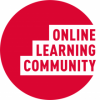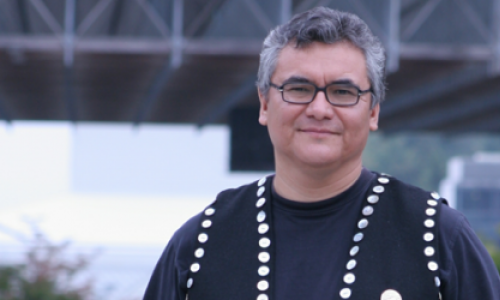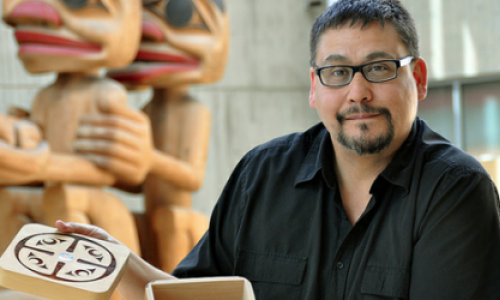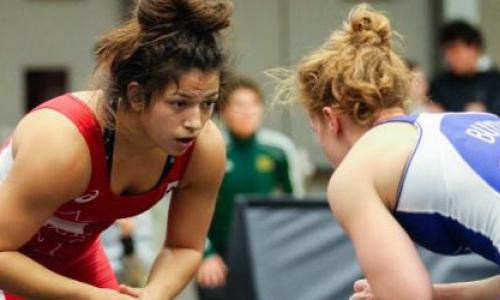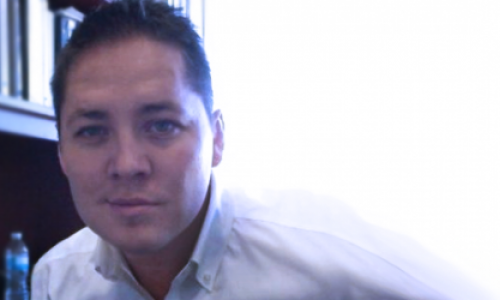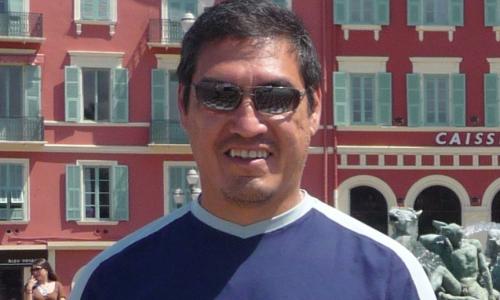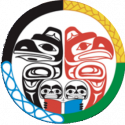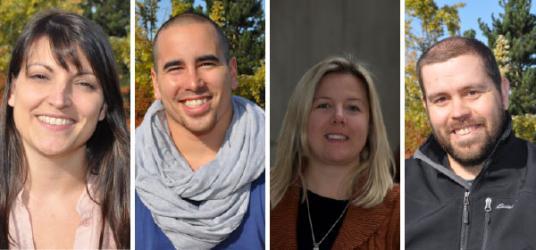
The First Nations Student Association represents all self-identifying Aboriginal, First Nations, Inuit, Métis and status/non-status students at the Burnaby campus.
The association’s goal is to educate the general student body about Indigenous students and their issues.
With 150 active members, the FNSA holds four major community-engagement events each term—including potlatches, film screenings and lectures.
Last fall the association was deeply involved in sponsoring Residential School week, and also organized a lecture series featuring colonization, Indigenous empowerment, and female survivors of domestic violence.
Below are profiles of a few of the FNSA board members.

Laura Forsythe, 34, entered SFU as a mature student after the birth of her daughter two years ago convinced her to give up the 70-hour-a-week corporate life.
She is now majoring in First Nations Studies, but also spends a great deal of time volunteering at SFU.
In addition to serving as the FNSA’s treasurer, she is a peer cousin for the Indigenous Students’ Centre, and an Indigenous-program researcher for SFU Career Services, where she created an online learning community and website for Indigenous students. She is also a research assistant in the Faculty of Education, where she is working on a project to document Aboriginal students’ success stories.
“I hope to use it as an honours project,”
- Forsythe
She was recently invited to join the Golden Key International Honour Society, whose members’ grades represent the top 15 per cent of their class.
Forsythe intends to become a professor of education.
“I want to spend my time ensuring that Aboriginal students complete their education.”
- Forsythe
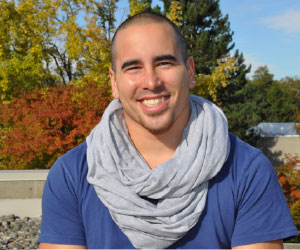
Tysun Tallman was working part-time as an auto service technician in Kamloops, B.C. when a chance encounter with a dean from Thompson Rivers University (TRU) led his life in a new direction.
The dean suggested Tallman apply to TRU as a mature student, and Tallman took his advice. He upgraded his academic qualifications and then enrolled in science and kinesiology courses before transferring two years later to SFU.
Today, Tallman is in his third year of health sciences and planning a career in which he can improve Aboriginal health disparities.
"A Co-op education term split between the First Nations Health Authority (FNHA), and Aboriginal Health Program at the Provincial Health Services Authority (PHSA) “opened my eyes to public and population health,”
- Tallman
The first SFU student to be hired by the FNHA, he was charged with improving its engagement with the Aboriginal community. He coordinated 20 wellness day events across the province, and was hired after completing his Co-op term to support the development of an online youth wellness project for the PHSA Aboriginal Health program.
He also works part-time for SFU Career Services as an Indigenous program researcher and career advisor.

Levi Wilson enrolled in university after high school but dropped out after his first year.
“I wanted to be a teacher, but I wasn’t ready for university,”
- Wilson
He took a job in construction on Galiano Island, where he grew up, but by age 28, he realized he was working in an industry that takes a long-term toll on workers’ health.
Wilson returned to university and aims to become a secondary school teacher.
He also works as a community liaison for the FNSA, charged with increasing SFU students’ overall Aboriginal awareness. As part of that mission, he is planning eco-cultural trips to Galiano Island with SFU’s outdoors and environment clubs. He also volunteers as a peer cousin with the Indigenous Student Centre.
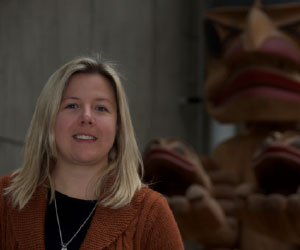
FNSA board rep Nina Repchuk completed an associate degree in science at Douglas College before transferring to SFU in 2005, but then dropped out after just one semester.
“I wasn’t sure what I wanted to do with my life,” she says. “And in 2005, there was no support for Aboriginal students like there is now. I just felt really alone.”
She returned to SFU in 2011 and says that has all changed since she was introduced to the FNSA.
“From there I felt as if I were actually part of an engaged community that cared about me and how I did academically,” she says.
Now an active FNSA member, she is organizing a tutoring program to help FNSA members’ children with their schoolwork. She is also helping the Department of Athletics and Recreation to organize SFU’s new summer camp for Aboriginal youth.
Repchuck expects to convocate this June with a Bachelor of Science. She plans to become a teacher, although she says,
“I can’t decide between teaching or working with Aboriginal communities to create programs or new initiatives.”









